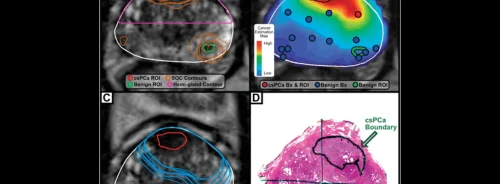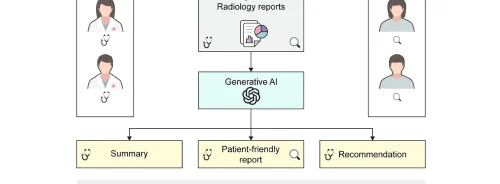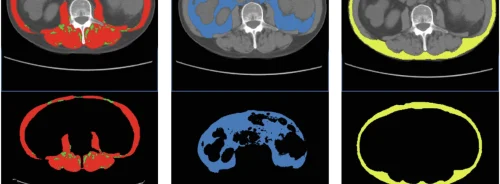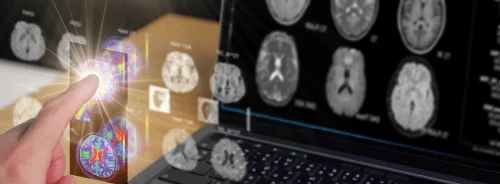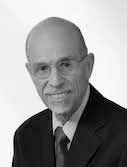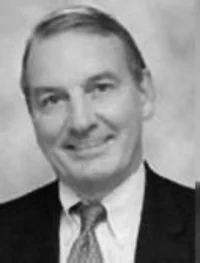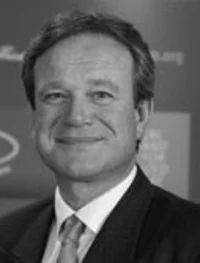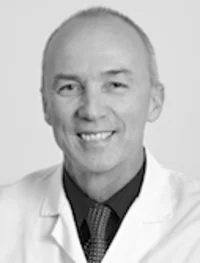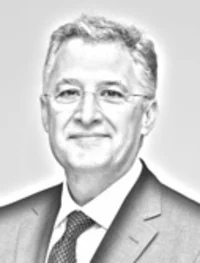Professor Leonard Berlin, MD, FACR, is Professor of Radiology at both Rush Medical College and the University of Illinois College of Medicine. Dr. Berlin was awarded Gold Medals for distinguished service to Radiology by the American Roentgen Ray Society in 2002, the Chicago Radiological Society in 2005, and the American College of Radiology in 2010. He participates actively in academic radiological and other medical affairs, both in the U.S. and internationally, including the 2014 Management in Radiology annual scientific meeting in Bologna.
Dr. Berlin has written more than 400 scientific publications, seven book chapters, and a book entitled 'Malpractice Issues in Radiology' now in its third edition. He has also given more than 375 lectures on various medical subjects both nationally and internationally, primarily on the topic of radiologic malpractice and risk management, and he delivered the Annual Oration (in verse) at the 2012 Annual Meeting of the Radiology Society of North America (RSNA).
We put our 7 questions to Prof. Berlin:
1. What are your key areas of interest and research?
Although my vocation for the past 51 years has been and remains general diagnostic radiology, my avocation-i.e., chief interest, has been risk management in radiology: how do we improve and maintain good patient care and welfare by first determining where and how we make mistakes in diagnosis, and/or inadvertently fail to follow appropriate procedures and practices that are injurious to patients, and then modifying our practice so as to ensure that all patients receive excellent - and safe - care.
2. What are the major challenges in your field?
The reluctance of many radiologists to recognise the causes of their mistakes and complications that occur with radiologic interpretation and procedures, and their unwillingness to accept and apply methods to reduce them.
3. What is your top management tip?
Lead by example. When you criticise a colleague or an employee, do so constructively.
4. What would you single out as a career highlight?
My career highlights include my receiving the Gold Medals for distinguished service to radiology from the American Roentgen Ray Society, and the American College of Radiology, and sponsoring and underwriting the American Roentgen Ray Society's Leonard Berlin Scholarship in Professionalism, which supports study and research related to medical ethics, medicolegal principles, patient accountability, sensitivity to patient diversity and other topics encompassing medical professionalism. My profession has been good to me, both professionally and materially, and thus I feel a strong responsibility to, and derive much satisfaction from, giving something back to my profession that will benefit others who will follow me.
5. If you had not chosen this career path you would have become a...?
During my early medical school years I initially wanted to be an obstetrician-gynaecologist, for I could not envision any greater satisfaction from medicine than to assist in bringing a new life into the world. However, I then began working my way through school by working as an x-ray technologist, and thus my interest turned to radiology, where I would be the "doctor's doctor."
6. What are your personal interests outside of work?
My prime interest is being with my family--my wife of 58 years, my four children, and eight grandchildren. As part of my "work," I write extensively, and quite often lecture in the U.S, and elsewhere around the world - although I do not really consider such activities as "work" - rather they are more like hobbies.
7. Your favourite quote?
My favourite and most often-used quote are two little words that have greatly enhanced my career of relating to patients, colleagues, friends, and "customers", whenever I have been involved in an untoward event for which I may have, or even may not have, been at fault, or I am criticised by a patient or colleague, fairly or unfairly, for something that I did or failed to do. The words are "I'm sorry," followed by, " What can I do to make it right and make you happy?" Those few simple words make (and/or maintain) friends out of complainers 98% of the time. I have always found that the opposite - being defensive and argumentative - serves only to enhance the displeasure - and often infuriate - the other individual.
Another quotation that influences me was from a tailor! Here's the brief story: About 10 years after my wife and I were married, when I was just starting radiology practice and dollars were rare, we were invited to a special dinner. I owned one suit, which I wore almost every day, and so my wife told me that I should buy a new suit for the dinner. I was reluctant to spend money on a new suit, but she convinced me (as good wives do) to buy a new suit, so we went to a local men's clothing store and picked out a nice suit. The cost was $100, which was a lot of money in those days. The tailor had me stand on a little podium with the suit on, so he could measure the length and make the appropriate cuffs. As he did so, I looked down at him, who was on his knees, and I said, "For the price I'm paying for this suit, I want it to fit perfect." He looked up to me with a little smile and replied, "Doctor, the only time the suit will fit perfect is when you're in the coffin."
That quote has stayed with me ever since. The message is clear and filled with wisdom: There is no such thing as perfection in this life. We must all act, and expect others to act, as close to perfection as possible; but to expect perfection and chastise another or oneself because conduct or achievement was less than perfect, is to make oneself and others very, very, unhappy and possibly miserable.
Dr. Berlin was born, raised, and educated in Chicago. He attended the University of Illinois College of Medicine in Chicago where he was awarded his MD degree in 1959, and he spent his radiology residency at the University of Illinois hospitals. Upon completion of his residency in 1963, Dr. Berlin served in the United States Air Force with the rank of Captain, as a radiologist at Wright Patterson Air Force Base in Ohio. Returning to Chicago in 1965, Dr. Berlin became Assistant Professor of Radiology at the University of Illinois. In 1966 he joined the staff of Rush North Shore Medical Center (then known as Skokie Valley Community Hospital), and in 1977 was appointed Chairman of its Department of Radiology, a position he held for 32 years. Following the acquisition by NorthShore University HealthSystem on January 1, 2009, the hospital was renamed Skokie Hospital at which time Dr. Berlin relinquished the title of Chairman and remains a member of the Radiology Department. He became Professor of Radiology at Rush Medical College in 1987, and Professor of Radiology at the University of Illinois in 2010.
Dr. Berlin is a member of numerous national and local medical societies and other professional organisations, serving in various capacities including membership on or chairman of many strategic committees. Dr. Berlin served as a member of the ACR's Council Steering Committee from 2006 to 2009. He is immediate past Chairman of the RSNA's Professionalism Committee, the ACR's Ethics Committee, the ACR's Task Force on Conflict of Interest, and past Co-Chairman of the RSNA-ACR Task Force to Develop a Core Curriculum on Professionalism for Radiology Residents. Dr. Berlin served as President of the Chicago Radiological Society in 1997-98, the Illinois Radiological Society in 2006-07, and Honorary President of the Sao Paulo Brazil Radiology Society 2011 Annual Meeting. He received the University of Illinois College of Medicine's Distinguished Alumnus Award in 2009, and was awarded Honorary Membership in the Italian Society of Radiology in 2010, and the Israel Radiology Society in 2011.
Further reading
Berlin L (2007) Medical practice driven by fear of legal liability - is Europe catching the American ailment? IMAGING Management 7(2): 26-8.
Berlin L (2007) Failure to communicate - what is the radiologist's responsibility? IMAGING Management 7(3): 26-7.
Dr. Berlin has written more than 400 scientific publications, seven book chapters, and a book entitled 'Malpractice Issues in Radiology' now in its third edition. He has also given more than 375 lectures on various medical subjects both nationally and internationally, primarily on the topic of radiologic malpractice and risk management, and he delivered the Annual Oration (in verse) at the 2012 Annual Meeting of the Radiology Society of North America (RSNA).
We put our 7 questions to Prof. Berlin:
1. What are your key areas of interest and research?
Although my vocation for the past 51 years has been and remains general diagnostic radiology, my avocation-i.e., chief interest, has been risk management in radiology: how do we improve and maintain good patient care and welfare by first determining where and how we make mistakes in diagnosis, and/or inadvertently fail to follow appropriate procedures and practices that are injurious to patients, and then modifying our practice so as to ensure that all patients receive excellent - and safe - care.
2. What are the major challenges in your field?
The reluctance of many radiologists to recognise the causes of their mistakes and complications that occur with radiologic interpretation and procedures, and their unwillingness to accept and apply methods to reduce them.
3. What is your top management tip?
Lead by example. When you criticise a colleague or an employee, do so constructively.
4. What would you single out as a career highlight?
My career highlights include my receiving the Gold Medals for distinguished service to radiology from the American Roentgen Ray Society, and the American College of Radiology, and sponsoring and underwriting the American Roentgen Ray Society's Leonard Berlin Scholarship in Professionalism, which supports study and research related to medical ethics, medicolegal principles, patient accountability, sensitivity to patient diversity and other topics encompassing medical professionalism. My profession has been good to me, both professionally and materially, and thus I feel a strong responsibility to, and derive much satisfaction from, giving something back to my profession that will benefit others who will follow me.
5. If you had not chosen this career path you would have become a...?
During my early medical school years I initially wanted to be an obstetrician-gynaecologist, for I could not envision any greater satisfaction from medicine than to assist in bringing a new life into the world. However, I then began working my way through school by working as an x-ray technologist, and thus my interest turned to radiology, where I would be the "doctor's doctor."
6. What are your personal interests outside of work?
My prime interest is being with my family--my wife of 58 years, my four children, and eight grandchildren. As part of my "work," I write extensively, and quite often lecture in the U.S, and elsewhere around the world - although I do not really consider such activities as "work" - rather they are more like hobbies.
7. Your favourite quote?
My favourite and most often-used quote are two little words that have greatly enhanced my career of relating to patients, colleagues, friends, and "customers", whenever I have been involved in an untoward event for which I may have, or even may not have, been at fault, or I am criticised by a patient or colleague, fairly or unfairly, for something that I did or failed to do. The words are "I'm sorry," followed by, " What can I do to make it right and make you happy?" Those few simple words make (and/or maintain) friends out of complainers 98% of the time. I have always found that the opposite - being defensive and argumentative - serves only to enhance the displeasure - and often infuriate - the other individual.
Another quotation that influences me was from a tailor! Here's the brief story: About 10 years after my wife and I were married, when I was just starting radiology practice and dollars were rare, we were invited to a special dinner. I owned one suit, which I wore almost every day, and so my wife told me that I should buy a new suit for the dinner. I was reluctant to spend money on a new suit, but she convinced me (as good wives do) to buy a new suit, so we went to a local men's clothing store and picked out a nice suit. The cost was $100, which was a lot of money in those days. The tailor had me stand on a little podium with the suit on, so he could measure the length and make the appropriate cuffs. As he did so, I looked down at him, who was on his knees, and I said, "For the price I'm paying for this suit, I want it to fit perfect." He looked up to me with a little smile and replied, "Doctor, the only time the suit will fit perfect is when you're in the coffin."
That quote has stayed with me ever since. The message is clear and filled with wisdom: There is no such thing as perfection in this life. We must all act, and expect others to act, as close to perfection as possible; but to expect perfection and chastise another or oneself because conduct or achievement was less than perfect, is to make oneself and others very, very, unhappy and possibly miserable.
Dr. Berlin was born, raised, and educated in Chicago. He attended the University of Illinois College of Medicine in Chicago where he was awarded his MD degree in 1959, and he spent his radiology residency at the University of Illinois hospitals. Upon completion of his residency in 1963, Dr. Berlin served in the United States Air Force with the rank of Captain, as a radiologist at Wright Patterson Air Force Base in Ohio. Returning to Chicago in 1965, Dr. Berlin became Assistant Professor of Radiology at the University of Illinois. In 1966 he joined the staff of Rush North Shore Medical Center (then known as Skokie Valley Community Hospital), and in 1977 was appointed Chairman of its Department of Radiology, a position he held for 32 years. Following the acquisition by NorthShore University HealthSystem on January 1, 2009, the hospital was renamed Skokie Hospital at which time Dr. Berlin relinquished the title of Chairman and remains a member of the Radiology Department. He became Professor of Radiology at Rush Medical College in 1987, and Professor of Radiology at the University of Illinois in 2010.
Dr. Berlin is a member of numerous national and local medical societies and other professional organisations, serving in various capacities including membership on or chairman of many strategic committees. Dr. Berlin served as a member of the ACR's Council Steering Committee from 2006 to 2009. He is immediate past Chairman of the RSNA's Professionalism Committee, the ACR's Ethics Committee, the ACR's Task Force on Conflict of Interest, and past Co-Chairman of the RSNA-ACR Task Force to Develop a Core Curriculum on Professionalism for Radiology Residents. Dr. Berlin served as President of the Chicago Radiological Society in 1997-98, the Illinois Radiological Society in 2006-07, and Honorary President of the Sao Paulo Brazil Radiology Society 2011 Annual Meeting. He received the University of Illinois College of Medicine's Distinguished Alumnus Award in 2009, and was awarded Honorary Membership in the Italian Society of Radiology in 2010, and the Israel Radiology Society in 2011.
Further reading
Berlin L (2007) Medical practice driven by fear of legal liability - is Europe catching the American ailment? IMAGING Management 7(2): 26-8.
Berlin L (2007) Failure to communicate - what is the radiologist's responsibility? IMAGING Management 7(3): 26-7.

